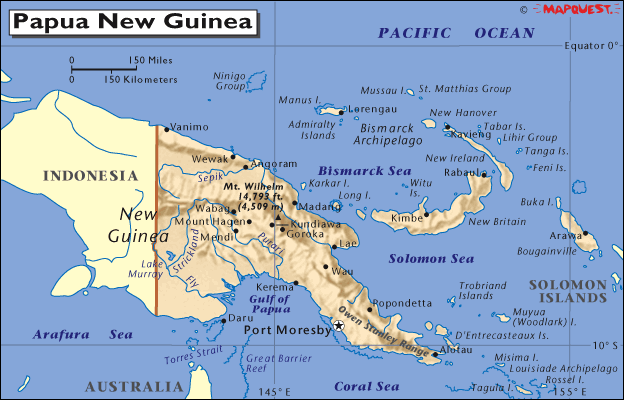External threats such as pest infestation and adverse weather conditions could reduce earnings prospects for Papua New Guinea’s coffee industry this year, despite efforts to improve output and strengthen infrastructure.
Coffee berry borer infestation impacts harvest
In late June the governmental Coffee Industry Corporation (CIC) announced that 370 tonnes of cherry coffee from the Dei District of the Western Highlands Province were being rejected on a daily basis at a checkpoint set up Kondapina along the Waghi River due in to an infestation of coffee berry borer (CBB), a beetle native to Africa, highlighting one of the biggest threats to coffee yields.
To date, hundreds of tonnes of unprocessed beans have been confiscated and destroyed in an effort to limit the spread of the insect, which is considered one of the most harmful coffee crop pests in the world.
The industry is currently experiencing a reoccurrence of CBB, whose presence was first reported in the country in November 2009; there are concerns that the present outbreak, which began in February, could be one of the worst on record.
The Ministry of Agriculture has warned that up to 80% of the national harvest could be impacted if the CBB infestation manages to spread to all the main production centres.
Prevention focused on crop management skills
In response to this threat, the CIC told local media in March it was reworking its strategy to raise awareness and improve crop management skills among farmers, allowing them to recognise CBB activity early and take action, such as destroying blighted pods. Other measures typically deployed to contain the spread of the outbreak include quarantining certain regions.
Opinions on how to combat the borer vary. Some authorities propose culling trees in affected areas, then replanting CBB-resistant strains – a strategy similar to one used in the past to eradicate cocoa pods borers when an infestation threatened that industry’s existence.
Some experts, however, believe a more contained approach can be taken.
The destruction of plantations where the borer infestation is present – a policy that would cut production in affected areas for an extended period – is not warranted, according to Potaisa Hombunaka, project manager for the World Bank’s Productive Partnerships in Agriculture Programme, which operates under the CIC.
“Cutting down trees and burning them is the wrong option,” he told OBG. “The insect only survives on the berry; there is no need to destroy the whole tree.”
Some regions, such as the Waghi district in the Western Highland Province, have tried a mix of pruning affected trees and spraying, though the practice has not become more widespread due to limited funding.
Coffee price fluctuations affect earnings
The reappearance of the CBB comes at a time when coffee growers in PNG must contend with fluctuations in global coffee prices, which eroded earnings in the first half of this year.
Between January and June international coffee prices dropped 11%, hitting 15-month lows, though they rose slightly in July. This was partly due to news that unseasonably cold weather in Brazil and an outbreak of leaf rust in Honduras could result in lower harvests and a fall in global supply.
These reports illustrate the coffee industry’s vulnerability to climatic and environmental factors, with PNG’s own production at times subject to drought brought on by the El Niño weather pattern.
The last wave of El Niño began in the second half of 2015 and lasted well into 2016, with extreme drought conditions impacting harvests across the agricultural industry, including coffee.
In early March meteorological experts again warned of increased likelihood of the onset of El Niño in the latter part of 2017, meaning PNG coffee growers could face a dry summer season, leading to lower yields and uncertain prospects in 2018.
Coffee-related logistics firms to benefit from improved transport infrastructure
While the medium-term climate forecast may be unfavourable, the prognosis for logistics firms supporting the coffee industry is looking brighter.
The industry is set to be a major beneficiary of a 10-year programme to rehabilitate a 90-km section of the Highlands Highway, a 700-km artery that serves as the main link between many of PNG’s coffee producers and their markets. Funded partly by the Asian Development Bank, the $1bn project aims to expand the highway’s traffic capacity, repair existing damage and establish long-term maintenance programmes.
Improved transport should help reduce losses during the transfer of crops from farm to buyer, estimated at up to 48% in some cases, and cut supply-side costs by lowering transport times.
Coffee production as an economic driver
As one of PNG’s leading cash crops, coffee is a cornerstone of the agriculture sector, with exports averaging about 1m 60-kg bags a year, generating revenue of PGK500m ($157.1m).
Some 397,000 households depend on coffee production as their main source of income, according to the Rural Industries Council, with the industry providing employment to up to 3m of the country’s 8m people.
While coffee is big business, its production is dominated by smallholders – growers who may have as few as a dozen trees, compared to plantations where the average is around 1500.
A transport network that improves connectivity between smallholders and key hubs, and an approach to pest control that minimises damage and costs for small-scale producers, could help the sector mitigate potential losses in the longer term.


















